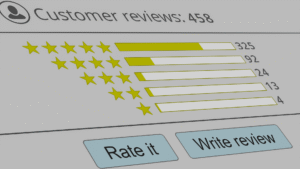In the rapidly evolving landscape of commerce, small businesses are often at the forefront of innovation and adaptability. As we approach 2025, the dynamic nature of technology, consumer behavior, and market trends continues to reshape how small businesses operate and thrive. This article delves into the key developments and insights that are expected to shape the small business ecosystem in 2025. We will explore emerging technologies that are revolutionizing business practices and examine growth trends that are setting the stage for future success.
Emerging Technologies Shaping Small Businesses in 2025
The year 2025 is poised to be a landmark for small businesses as they increasingly integrate cutting-edge technologies into their operations. One of the most influential technologies is artificial intelligence (AI), which has become more accessible and affordable for small enterprises. AI-powered tools are enabling businesses to enhance customer experiences through personalized interactions and predictive analytics. From chatbots that provide round-the-clock customer support to AI-driven marketing campaigns that target consumer behaviors with precision, small businesses are leveraging these technologies to compete with larger corporations on a more level playing field.
Blockchain technology is another pivotal development set to impact small businesses by 2025. Initially known for its association with cryptocurrencies, blockchain is now being recognized for its potential to bring transparency, security, and efficiency to various business processes. Small businesses are beginning to adopt blockchain for supply chain management, ensuring the authenticity of products and reducing fraud. Furthermore, blockchain’s immutable ledger system is being used for secure record-keeping and contract management, offering small businesses a reliable way to verify transactions and agreements without the need for intermediaries.
The Internet of Things (IoT) is also transforming how small businesses operate, making processes more efficient and cost-effective. IoT devices are being employed in various sectors, from retail to agriculture, to monitor and optimize operations. For example, in retail, IoT sensors can track inventory levels in real-time, reducing the risk of stockouts and overstocking. In agriculture, IoT devices monitor environmental conditions to optimize crop yields and reduce waste. As IoT technology continues to advance, small businesses are expected to benefit from increased automation and data-driven decision-making, allowing them to enhance productivity and reduce operational costs.
Key Insights into 2025 Small Business Growth Trends
Small businesses in 2025 are expected to experience significant growth driven by a combination of technological advancements and evolving consumer preferences. One of the key trends is the rise of sustainable and ethical business practices. Consumers are increasingly prioritizing sustainability, prompting small businesses to adopt eco-friendly practices and products. This shift is not only enhancing brand loyalty but also opening new market opportunities for businesses that align with consumer values. Small businesses that incorporate sustainability into their core operations are likely to gain a competitive advantage in the coming years.
Another important growth trend for small businesses in 2025 is the emphasis on personalized customer experiences. As consumers demand more tailored interactions, small businesses are leveraging data analytics and AI to deliver personalized services and products. This trend is particularly significant in e-commerce, where personalized recommendations and targeted marketing are driving higher conversion rates. By understanding and anticipating customer needs, small businesses can foster stronger relationships and enhance customer satisfaction, ultimately leading to increased revenue and growth.
Lastly, the gig economy is expected to continue its expansion, providing small businesses with greater flexibility and access to a diverse talent pool. With more individuals choosing freelance and contract work, small businesses can tap into specialized skills and expertise without the long-term commitment of traditional employment. This trend allows small businesses to scale operations quickly and efficiently, adapting to changing market demands. The gig economy also empowers small businesses to offer innovative services and products by collaborating with skilled professionals who bring fresh perspectives and ideas.
As we look toward 2025, small businesses are set to undergo transformative changes driven by technology and evolving market trends. By embracing emerging technologies such as AI, blockchain, and IoT, small enterprises can enhance their operations and compete more effectively against larger corporations. Additionally, growth trends focused on sustainability, personalized customer experiences, and the gig economy are poised to create new opportunities for small businesses. Those that adapt to these changes and leverage the insights provided will be well-positioned to thrive in the ever-evolving business landscape. As the future unfolds, small businesses will continue to play a crucial role in driving innovation and economic growth across various industries.
















